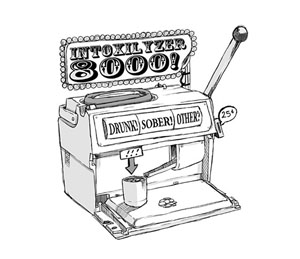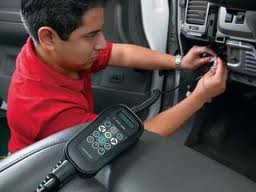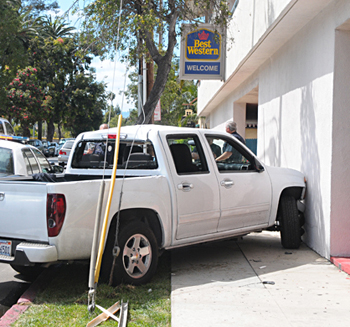 Judge Susan Watters was required by Montana’s DUI sentencing laws to give a seemingly lenient sentence to a man who has been arrested for drunk driving a dozen times. The case of William Dean Grussing brought light to what the prosecutor referred to as a “gaping hole” in a statute that is supposed to punish drunk drivers. According to the Montana DUI laws, a maximum sentence of 5 years can be imposed for a felony DUI conviction if the defendant previously attended a treatment program while in jail for a DUI offense. However, as in Grussing’s case, if a defendant did not participate in a treatment program they can only be sentenced to a standard term of 13 months followed by a maximum probation of 5 years.
Judge Susan Watters was required by Montana’s DUI sentencing laws to give a seemingly lenient sentence to a man who has been arrested for drunk driving a dozen times. The case of William Dean Grussing brought light to what the prosecutor referred to as a “gaping hole” in a statute that is supposed to punish drunk drivers. According to the Montana DUI laws, a maximum sentence of 5 years can be imposed for a felony DUI conviction if the defendant previously attended a treatment program while in jail for a DUI offense. However, as in Grussing’s case, if a defendant did not participate in a treatment program they can only be sentenced to a standard term of 13 months followed by a maximum probation of 5 years.
Judge Susan Watters said, “It seems counter-intuitive to me that someone who completes treatment could get five years, but someone who doesn’t gets a more lenient sentence. That doesn’t make sense to me, and I would encourage the Legislature to take a look at that provision.”
Grussing was charged with his 12th DUI in June 2011. While that case was pending, Grussing was arrested for DUI again in June 2012 and was charged with his 13th DUI.
Grussing could have been required to pay a $5,000 fine for felony DUI, which is Montana’s maximum fine. Grussing was ordered to pay $3,000 in fines. Grussing spoke at his sentencing hearing, and said he had been sober for 9 1/2 years before last year’s arrest.
Montana has been getting tougher on DUI laws in other ways. House Bill 14, which changes the look-back period for DUI offenses from five-years to ten-years, was passed in 2011. This means that any DUI on a person’s record can be considered if they re-offend within a ten-year period. Previously, the courts could only consider drunk driving offenses that occurred within the last five years.
Not all lawmakers were fond of this new law, especially Republican Alan Hale, who gave a speech opposing HB14 and the toughening of all DUI laws. He said, “These DUI laws are not doing our small businesses in our state any good at all. They are destroying them. They are destroying a way of life that has been in Montana for years and years. These taverns and bars in these smaller communities connect people together. They are the center of the communities. I’ll guarantee you there’s only two ways to get there: either you hitchhike, or you drive, and I promise you they’re not going to hitchhike.”
 There are over 70 different types of licenses for selling alcohol in Kansas, and seven classifications dictating alcohol sales in a county, ranging from dry, wet, moist, limited, golf course, winery, and qualified historic site (QHS). In Kansas, voters are not allowed to buy alcoholic beverages during primary or general elections but can during special elections. Grocery stores must have a separate entrance and shop in order to sell wine or liquor, and consumers can run a tab on beer at a bar but cannot do the same for distilled spirits or wine.
There are over 70 different types of licenses for selling alcohol in Kansas, and seven classifications dictating alcohol sales in a county, ranging from dry, wet, moist, limited, golf course, winery, and qualified historic site (QHS). In Kansas, voters are not allowed to buy alcoholic beverages during primary or general elections but can during special elections. Grocery stores must have a separate entrance and shop in order to sell wine or liquor, and consumers can run a tab on beer at a bar but cannot do the same for distilled spirits or wine.
 A petition was filed with Florida’s Division of Administrative hearings last week challenging the use of the breath-testing machine, the Intoxilyzer 8000, as a reliable device in drunk driving prosecutions.
A petition was filed with Florida’s Division of Administrative hearings last week challenging the use of the breath-testing machine, the Intoxilyzer 8000, as a reliable device in drunk driving prosecutions.
 A new Alabama law took effect September 1 that will affect people convicted of DUI with a BAC above 0.15%. The ignition interlock device is a machine installed in a vehicle to test the BAC of the driver, and many states have laws that make these devices mandatory after a person has been convicted of a DUI.
A new Alabama law took effect September 1 that will affect people convicted of DUI with a BAC above 0.15%. The ignition interlock device is a machine installed in a vehicle to test the BAC of the driver, and many states have laws that make these devices mandatory after a person has been convicted of a DUI.
 An Allegheny County program allows drunk drivers to serve mandatory jail time in a hotel if they meet certain requirements. Known to some as “
An Allegheny County program allows drunk drivers to serve mandatory jail time in a hotel if they meet certain requirements. Known to some as “